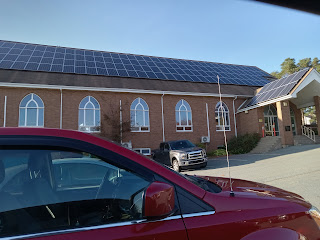Lead author Olivier Bois von Kursk of the report, from the International Institute for Sustainable Development (IISD), based on a comprehensive review of all “feasible” routes to staying below 1.5C, concludes that developing new oil and gas fields is not compatible with this goal.
Returning to the IISD report, it concludes that developing new oil and gas fields would be “incompatible” with 1.5C. This is not quite true, as the report itself explains.
The IISD report says it is possible that new oil and gas could be compatible with 1.5C, if old fields were also retired early. Bois von Kursk tells Carbon Brief this is rare, however:
“Early closure of fields already in production are extremely rare and we don’t see that happening unless the economics becomes unfavourable for fields with high extraction costs. Accordingly, since fields are almost never closed before the end of their economic lifetime, we advocate for preventing any new fields from opening up to avoid stranded assets or the risk of busting the carbon budget for 1.5C.”
More fundamentally, the energy from new oil and gas development would be needed to meet rising global demand unless alternative energy sources are available in sufficient quantities.
As the report notes, wind and solar are not currently expanding quickly enough for 1.5C. Similarly, the IEA said low-carbon energy investment needed to triple to get on track. (Evans, 2022)
Government policy to encourage and provide financial support for continued exploration for and production from Canadian gas and oil properties is in opposition to policy to limit global warming at 1.5C. Financial support is needed to accelerate the development of wind and solar energy sources in Canada.
References
Evans, S. (2022, October 23). New fossil fuels 'incompatible’ with 1.5C goal, comprehensive analysis finds. Carbon Brief. Retrieved October 24, 2022, from https://www.carbonbrief.org/new-fossil-fuels-incompatible-with-1-5c-goal-comprehensive-analysis-finds/

No comments:
Post a Comment